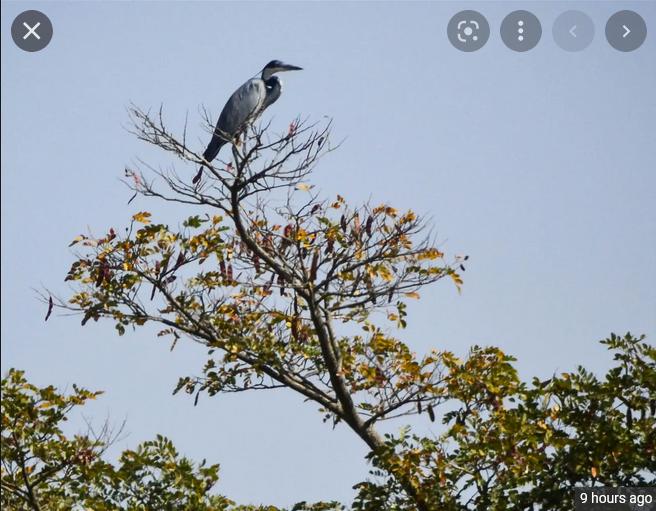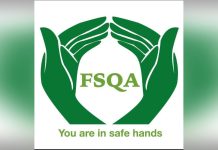Africa-Press – Gambia. In recent years, Nigeria has evolved into a primary transit hub for trafficking in illicit wildlife products, including pangolin scales, ivory and other protected species from Eastern and Central Africa, arriving in the country through its porous borders, as indicated in the United Nations Office on Drugs and Crime’s (UNODC) World Wildlife Crime Report 2020.Nigerian authorities have stepped up enforcement actions against illicit trafficking of wildlife and forestry products.
The Nigerian minister of environment, Mohammed Abdullahi, said the country is up-scaling its moves in combating wildlife and forest crimes citing the launch of the National Strategy Plan on Combating Illegal Wildlife and Forest Crime in Nigeria.Several large scale seizures of wildlife and forest products took place in 2021. In January 2021, the Nigeria Customs Service (NCS) intercepted a container of mixed wildlife products at the Apapa Port in Lagos.
The container was loaded with 2,772 pieces of elephant tusks weighing 4,752kg; 162 sacks of pangolin scales, weighing 5,329kg; 5kg of rhino horns; 103kg of skulls suspected to be of lions and other wild cats; and 76 pieces of processed timber.
A similar seizure was made at a warehouse in Lagos in July 2021, containing 7,137 kg of pangolin scales, 4.6 kg of pangolin claws and 870,44 kg of ivory.In September 2021, NCS also intercepted 15 sacks of pangolin scales weighing 1,009.51 kg.
On 2 February 2022, the Nigeria Customs Service reported yet another seizure of 14 sacks containing 839.40kgs of pangolin scales and 4 sacks containing 40 pieces of cut ivory weighing 145kgs.In all these, the UNODC through its Project “Strengthening Nigeria’s response to the trafficking of wildlife and forest products” is supporting the Nigerian authorities to address wildlife and forest crime.
The project, which is funded by the Government of Germany, supports the development of a National Strategy to Combat Wildlife and Forest Crime in Nigeria; strengthens the capacity of law enforcement officers to intercept and detect illegal shipments; as well as upgrades the capacity to investigate, prosecute and adjudicate wildlife and forest crime.
The Executive Director of UNODC, Ms Ghada Whaly, said that Nigeria is fast becoming a “primary transit hub” of wildlife products, stating that despite Nigeria having less than 0.1 per cent of the population of elephants in Africa, 23% of all elephant tusks seized globally between 2015 and 2019 had been smuggled through Nigerian ports.While bemoaning the illicit trafficking of wildlife products from Eastern and Central Africa, she said that the UNODC is ensuring feasible partnership with diverse groups of stakeholders, including key law enforcement agencies to ensure that trafficking of wildlife products are halted in Nigeria.She said Nigeria has evolved into a primary transit hub for trafficking in illicit wildlife products from Eastern and Central Africa.According to the UNODC World Wildlife Crime Report 2020 Nigeria has less than 1% of Africa’s elephants yet between 2015 and 2019 the country was the leading source of elephant tusk seizures accounting for 23% of global seizures.She added that 60% of global pangolin scale trafficking is traced back to Nigeria as the source of shipments. This February 2, the Nigeria Customs Service conducted an operation in Awoyaya, Lekki Lagos, arresting four suspects and seizing 839.40 kilograms of pangolin scales and 145 kilograms of elephant ivory.
“I commend Nigeria for taking the government’s action to address this growing problem. This five-year national strategy is a major step towards tackling wildlife and forest crime through a sustainable and strategic approach,” the UNODC boss said at the launch of Nigeria’s national strategy to combat wildlife and forest crime.I am pleased that UNODC has supported the development of the stray in close collaboration with national counterparts. We look forward to continuing this partnership. We are already in discussions with donors to ensure concerted support for the implementation of the strategy. UNODC is also committed to broadening the scope of our collaboration to address crimes that affect the environment.”
Campaigners say illegal trafficking of wildlife happens to be a multibillion-dollar business involving the plundering of and illegal trade of live animals, plants or parts and products derived from them. Wildlife is traded as skins, leather goods or souvenirs; as food or traditional medicine; as pets, and in many other forms.Traffickers illegally capture a diversity of irreplaceable species – rare butterflies and baby cheetahs, mahogany trees and hummingbirds, sea turtles and parrots—and sell them as meat, pets, traditional medicine, décor or in any capacity it is needed for.
Endangered animals and plants are often the target of wildlife crime because of their rarity and increased economic value. Two of such animals are pangolins and elephants. Pangolin is a quiet anteater which is trafficked because of its scales and the elephant, the ivory. The rate at which these animals are trafficked is alarming.
The Pangolin Reports states that roughly 50 tons of illegal African pangolin scales have been seized globally in shipments that contain both pangolins and ivory with pangolin scales surpassing the volume of ivory.
This means that people buy more pangolin scales than ivory.A report from the Environmental Investigation Agency (EIA) asserts that Nigeria has become the world’s largest hub for export of ivory and pangolin scales leaving African shores for Asian markets because between 2014 and 2018, Nigeria and the Democratic Republic of Congo (DRC) climbed to the top of the list, at 30.5 and 21 metric tons.
In that same period, Nigeria was connected to 167.6 metric tons of pangolin scale seizures — more than four times the DRC.There is a geographic consolidation of trafficking routes across several markets, with Nigeria emerging as a key source/transit country for many shipments of protected species and products. According to a report of the Convention on International Trade in Endangered Species of Wild Fauna and Flora (CITES), Elephant Trade Information System to COP17, Nigeria is the second most prominent ivory exporting country of West Africa, functioning as a major ivory hub that draws in ivory from Central Africa and, increasingly, as far away as East Africa.The report indicates that Nigeria harbours a large unregulated domestic ivory market.
Open source research indicates ivory is being sold in Lagos in markets and hotels under the guise of woodwork and bead work. Processing of ivory products for export to China takes place on a commercial scale (primarily bangles and name seals) using courier services or individual carriers.The Elephant Trade Information System to COP17 report identified corruption among port officials as one of the reasons why Nigeria is such an attractive destination for smugglers of wildlife.
In 2019, Nigeria was ranked at 146 out of 180 countries in Transparency International’s Corruption Perceptions Index. Shipping agents were reported to be charging premiums per ton for illegal wildlife product exports, paying higher-ranking officials up the chain along with others involved in inspection and border control measures.A major incentive for illegal trafficking of wildlife is the low political will to stop the trade and lack of prosecutions of offenders.
The Nigeria Customs Service has made a number of seizures and cases are then handed over to the National Environmental Standards and Regulations Enforcement Agency but no prosecutions happen.In a bid to conserve this endangered species, a global ban on illegal wildlife trade was given in January 2017 but this did not change anything as there has been an increment in the seizures of pangolins.
According to the EIA, there has been a fifty-four percent increase in the seizures of pangolins thereby showing that the world is becoming knowledgeable about the unlawful act. Nigeria is not left behind in creating awareness about illegal trafficking of pangolins as many reports have shown Customs seizures of pangolins.Trafficking in wildlife has far-reaching implications which include pollution, deforestation, destruction of natural habitats and climate change. Trafficking in wildlife diminishes species populations and causes local or even global extinction.
Further worsening the problem is the fact that the demand for larger and more ornate specimens means that hunters and collectors often aim for the fittest individuals from the breeding population, with serious consequences for subsequent generations. Illegal trade in wildlife negatively impacts a country’s natural resources and local communities that might otherwise benefit from tourism or legal, sustainable trade.
For More News And Analysis About Gambia Follow Africa-Press






